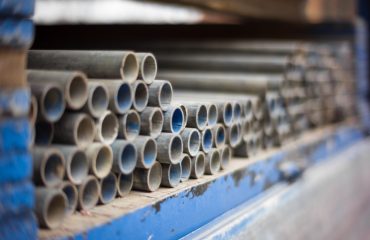The global steel industry is a fiercely competitive landscape. However, Turkish steel producers have carved a significant niche for themselves, consistently demonstrating a competitive edge that allows them to thrive in the international market. This success isn’t accidental; it’s the result of a strategic combination of factors, from robust production capabilities to a commitment to quality and cost-effectiveness.
1. Robust Production Capacity and Infrastructure
Turkey boasts a substantial and modern steel production infrastructure. Significant investments in recent years have led to the establishment of large, integrated steel mills equipped with cutting-edge technology. This advanced technology allows for high production volumes, efficient processes, and the creation of a diverse range of steel products catering to various industrial needs. The presence of both state-owned and privately-owned steel giants ensures a healthy level of competition, driving innovation and efficiency improvements. Furthermore, Turkey’s strategic geographical location facilitates both the import of raw materials and the export of finished products, minimizing transportation costs and lead times. This efficient logistical network plays a pivotal role in the competitiveness of Turkish steel.
2. Superior Quality and International Standards Compliance
Turkish steel producers are committed to upholding the highest quality standards. Many adhere to international certifications like ISO 9001, ensuring consistent quality control throughout the entire production process. This dedication to quality is not merely a marketing strategy; it’s integral to maintaining a strong reputation and attracting international clients. The focus on quality control extends beyond the manufacturing process; it also encompasses rigorous testing and inspection procedures to guarantee that the final product meets or exceeds the specified requirements. This meticulous approach to quality significantly enhances the reliability and trustworthiness of Turkish steel in the global market.
3. Cost-Effectiveness and Competitive Pricing
One of the key factors contributing to the competitive edge of Turkish steel is its cost-effectiveness. Turkey’s relatively lower labor costs compared to many developed nations, combined with efficient production processes and access to affordable raw materials, allow for competitive pricing strategies. This price competitiveness is particularly attractive to international buyers seeking high-quality steel at a reasonable cost. The government’s supportive policies, including incentives for investment and export promotion, also contribute to maintaining the cost-competitiveness of the Turkish steel industry.
4. Strategic Geographic Location and Global Reach
Turkey’s strategic location at the crossroads of Europe and Asia provides significant logistical advantages. This geographical position allows for easy access to major European and Asian markets, minimizing transportation costs and lead times. Turkish steel producers have leveraged this advantage to establish strong export networks, reaching customers across the globe. The country’s robust port infrastructure further facilitates efficient import and export operations, enhancing its competitive position in the global steel trade. This strategic location also allows for easier access to raw materials from various regions, further contributing to cost-effectiveness.
5. Government Support and Industry Collaboration
The Turkish government plays a significant role in supporting the growth and competitiveness of the steel industry. Through various initiatives, including investment incentives, export promotion programs, and infrastructure development, the government actively encourages the growth of the sector. Furthermore, there’s a strong emphasis on collaboration within the Turkish steel industry. Producers, research institutions, and government agencies work together to foster innovation, improve efficiency, and develop new technologies. This collaborative approach allows for the sharing of best practices and the development of solutions to common challenges faced by the industry. This collaborative spirit contributes significantly to the industry’s overall competitiveness and resilience.
In conclusion, the competitive edge of Turkish steel is a result of a multifaceted strategy involving robust production capabilities, a commitment to quality, cost-effectiveness, strategic geographical location, and strong government support. These factors combine to create a powerful force in the global steel market, ensuring that Turkish steel remains a highly sought-after product internationally.
SEO Tags:
Turkish Steel, Steel Industry, Global Steel Market, Turkish Steel Export, Competitive Steel Pricing




